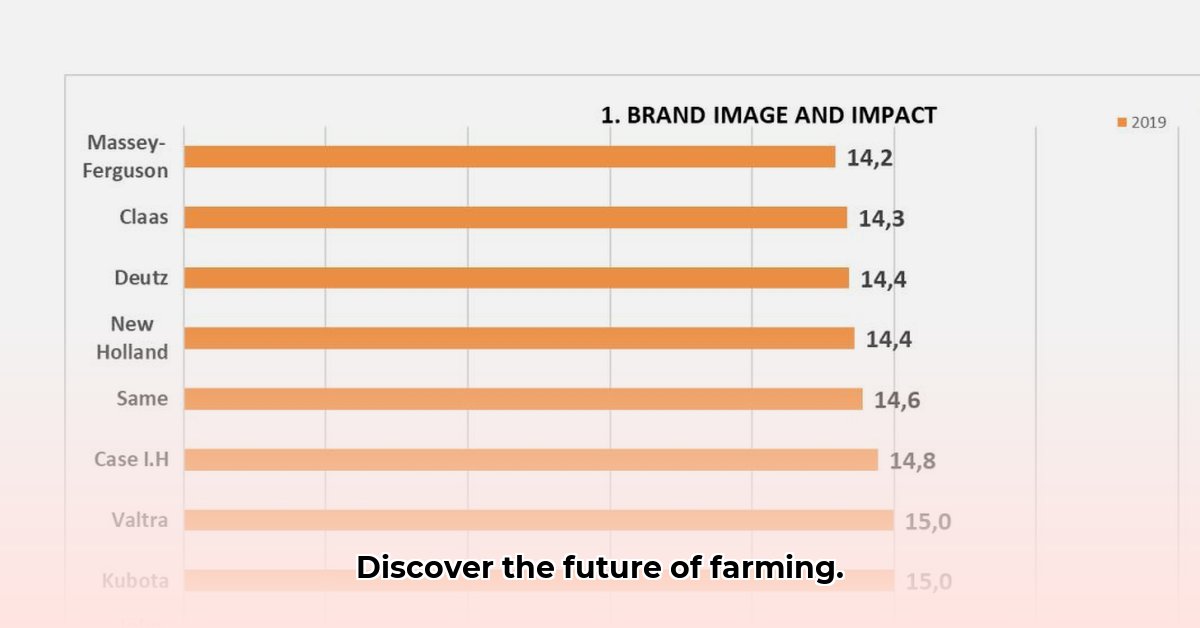
Choosing the right tractor is a multifaceted decision impacting productivity, profitability, and environmental sustainability. This comparative analysis examines leading US tractor brands, considering their features, pricing, and alignment with sustainable farming practices. For budget considerations, see tractor costs.
Key Considerations for Selecting a Tractor
Before diving into specific brands, let's outline the crucial factors influencing your choice:
Farm Size and Operations: The scale of your operation dictates power requirements, maneuverability needs, and overall tractor size. Smaller farms may benefit from compact tractors, while large-scale operations require high-horsepower models.
Budget: Tractors represent a substantial investment. Consider the initial purchase price, ongoing maintenance costs, and potential resale value.
Sustainability Goals: Increasingly, farmers prioritize environmentally friendly practices. Factors like fuel efficiency, emissions, and the availability of sustainable fuel options are becoming key considerations.
Technology Integration: Modern tractors offer advanced technology like GPS guidance, precision farming tools, and automated systems. These can drastically enhance efficiency and reduce waste.
Dealer Network and Support: Local dealer support is critical for timely repairs and parts accessibility, minimizing downtime and ensuring efficient operations.
Top Tractor Brands: A Comparative Overview
Several brands dominate the US tractor market. Each offers unique strengths and weaknesses, catering to varying farm sizes, budgets, and operational requirements.
John Deere and Case IH: Industry Giants
John Deere and Case IH are long-standing market leaders, recognized for their extensive dealer networks and wide range of models. These brands are synonymous with reliability and powerful machinery. However, their premium pricing and extensive technology packages might not be suitable for all farmers.
John Deere: Known for its strong brand recognition and user-friendly interfaces. Their advanced technology integration is a significant advantage, but it also comes at a higher initial cost.
Case IH: This brand is highly competitive in the high-horsepower segment. Case IH continually pushes the boundaries in innovative technology, offering robust solutions for large-scale farming.
Kubota and Mahindra: Alternative Options
Alternatives to the established giants offer a compelling value proposition for specific market segments.
Kubota: Kubota excels in the compact and mid-sized tractor market, ideal for smaller farms or specialized tasks. Their user-friendly designs and emphasis on reliability are attractive to many farmers.
Mahindra: Mahindra provides a more budget-friendly option, particularly appealing to new farmers or those with tighter budgets. While their technological offerings may be less extensive than their competitors, their cost-effectiveness remains a significant benefit.
Technology and Sustainability: Shaping the Future of Farming
The agricultural sector is rapidly adopting technology to enhance efficiency and reduce environmental impact. Precision farming tools, GPS guidance, and alternative fuel options are becoming increasingly prevalent. Most major brands are incorporating these advancements, although the degree of integration and the associated costs vary significantly.
Sustainable Practices and Technological Innovation
The shift towards sustainability is driving innovation in tractor design and manufacturing. Manufacturers are exploring alternative fuels (e.g., biomethane) and developing technologies to minimize fuel consumption, reduce emissions, and optimize resource utilization. This move towards environmentally responsible agriculture is crucial for the long-term viability of the industry. However, adopting these new technologies often involves a higher upfront investment.
Choosing the Right Tractor: Step-by-Step Guide
Selecting the ideal tractor requires careful consideration of your specific needs and priorities. The following steps provide a structured approach to making an informed decision:
Assess Your Farm's Requirements: Define your farming practices, acreage, terrain, and specific tasks.
Determine Your Budget: Establish a realistic budget, factoring in both initial purchase price and long-term maintenance costs.
Research Tractor Brands: Explore various brands, comparing their features, capabilities, and price points based on your needs.
Compare Maintenance Schedules and Costs: Analyze the long-term maintenance implications, considering parts availability, dealer support, and repair costs.
Evaluate Sustainability Features: Gauge the degree of sustainability offered by each brand, factoring in fuel efficiency, emissions, and the availability of alternative fuels.
Consider Technology Integration: Assess the level of technological integration offered by different brands and determine which features align with your needs and budget.
Consult with Experts and Farmers: Seek advice from local mechanics, experienced farmers, and agricultural advisors for valuable firsthand insights.
Conclusion: Making an Informed Decision
Selecting a tractor is a crucial investment. This decision must consider not only immediate needs but also long-term implications regarding sustainability, maintenance, and operational efficiency. By carefully weighing the factors discussed here and conducting thorough research tailored to your specific farming operation, you can ensure you make the optimal choice for your farm's future success.